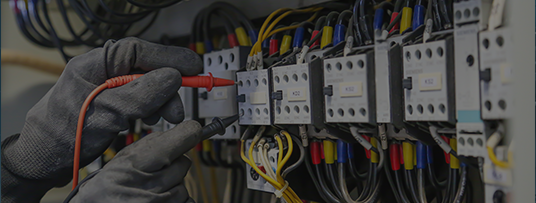Posted on May 15, 2024 olivia kim Aerospace
In the intricate world of electronics, resistors play an indispensable role, though their function might seem understated compared to more active components like transistors or microchips. Yet, without resistors, managing the flow of electrical currents within circuits would be challenging, if not impossible. These components are crucial for various applications, from the smallest gadgets to large electrical infrastructures. Understanding the function of resistors provides insights into basic electronics and illustrates the principles of electrical engineering.
At their core, resistors are designed to oppose the flow of electric current, a fundamental property of electrical resistance that makes them invaluable in circuit design. By creating resistance within the circuit, resistors play a pivotal role in controlling the amount of current passing through it. This ensures that other components receive the correct current level, as without such regulation, they could be at risk of damage from excessive current.
One of the primary functions of resistors is to divide voltage in a circuit, ensuring that different electronic components receive the necessary voltages they require. Resistors can be arranged in a configuration known as a voltage divider, which allows for voltage distribution across the circuit in varying amounts based on the needs of each component. This setup is crucial in devices like radios and televisions, where precise voltage levels are needed for optimal performance.
Additionally, resistors are integral to the design and operation of electronic filters. These filters block or pass electrical signals of specific frequencies while allowing others to pass, which is essential in audio and telecommunications equipment. By combining resistors with capacitors or inductors, engineers can create circuits that filter out unwanted frequencies or enhance desired ones. This capability is vital for achieving clear sound in audio devices and effective signal transmission in communication systems.
Resistors also serve a critical function in controlling the timing and duration of electronic signals. In circuits that include capacitors, resistors can be used to set the rate at which capacitors charge and discharge. This arrangement forms the basis of an RC circuit, which can be used to create timers or delays. The timing functions of RC circuits are essential in applications ranging from blinking lights to complex computer processors, where precise timing controls when certain actions occur. Additionally, the use of a potentiometer, an adjustable resistor, further illustrates the versatility of resistors in allowing for precise control over voltage and current, which are crucial performance indicators in a wide range of electronic applications.
The protective role of resistors should not be underestimated, as they are commonly used in conjunction with more sensitive components like light-emitting diodes (LEDs) to limit the current that passes through them. Without a resistor, an LED might receive too much current and quickly burn out. By adding a resistor to the circuit, the current is kept at a safe level, prolonging the life of the LED and maintaining the functionality of the device it supports.
Furthermore, resistors help manage power within a circuit, with power dissipation being a byproduct of their resistance and the current that flows through them. This property is exploited in power regulation applications where excessive power needs to be safely dissipated to prevent damage to electrical components. For instance, resistors can convert surplus electrical energy into heat in power supplies, which is then dissipated into the surrounding environment.
Heat management involves the deliberate use of resistors to produce heat for applications such as electric heaters or temperature sensors. In these contexts, resistors are designed to convert a significant portion of the electrical energy into heat in a controlled manner.
In conclusion, the functionality of resistors in electronic circuits extends far beyond simple resistance to current. We invite you to explore our website at your leisure through our curated catalogs, or you can narrow down particular electronic components using our search engine and filters. When you come across anything of interest, you can seamlessly request quotes for your comparisons through our online RFQ service and forms. There, you can provide us with pertinent information like your budget and anticipated fulfillment timeline, and our representatives will curate a response for you within 15 minutes. While other channels may ask you to compromise between prompt delivery, pricing, and quality, we strike an optimal balance so you can effortlessly meet your requirements. Keeping this in mind, kick off the purchasing process for the items that you require to see why so many customers choose Industrial Surge as their trusted procurement platform.

 The only independent
The only independent

 All Orders are Fulfilled in the U.S.A.
All Orders are Fulfilled in the U.S.A. All shipments must comply with U.S.A export laws.
All shipments must comply with U.S.A export laws. No exceptions.
No exceptions.

“We Proudly Support Intrepid Fallen Heroes Fund that serves United States Military Personal experiencing the Invisible Wounds of War : Traumatic Brain Injury (TBI) and Post Traumatic Stress (PTS). Please visit website (www.fallenheroesfund.org) and help in their valiant effort”.
We hope that you will visit us again the next time you need industrial parts and make us your strategic purchasing partner.
Request for Quote